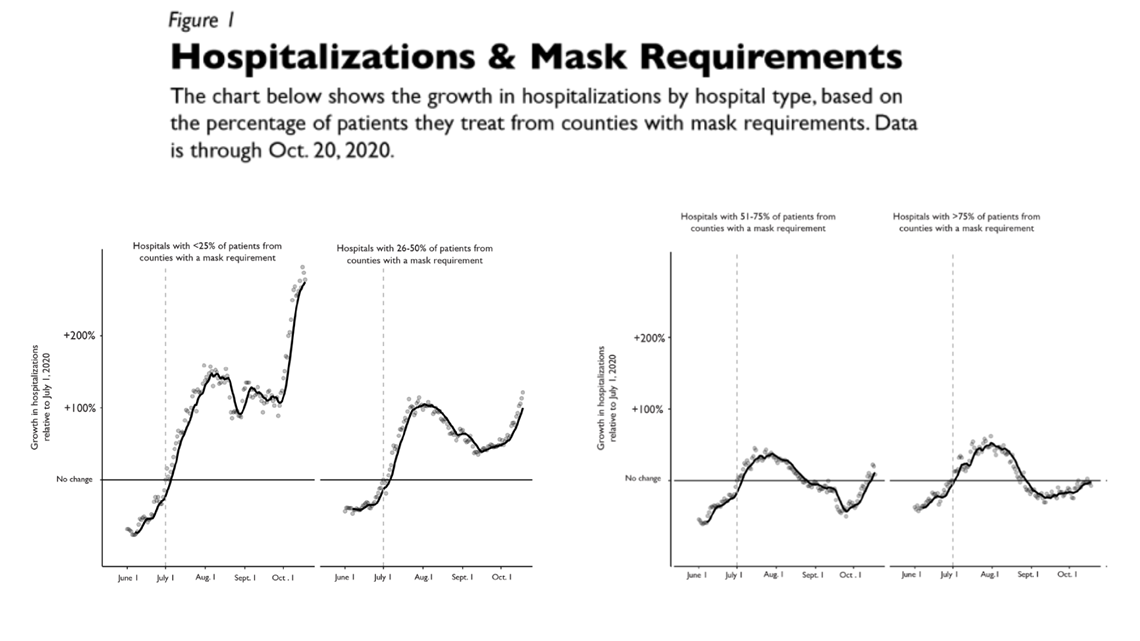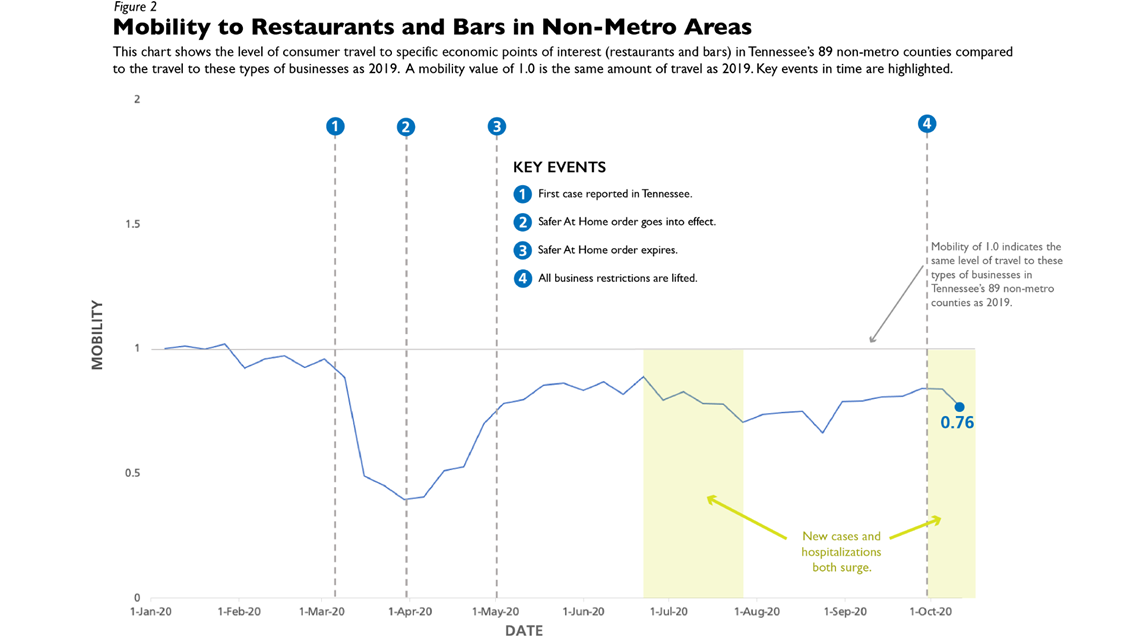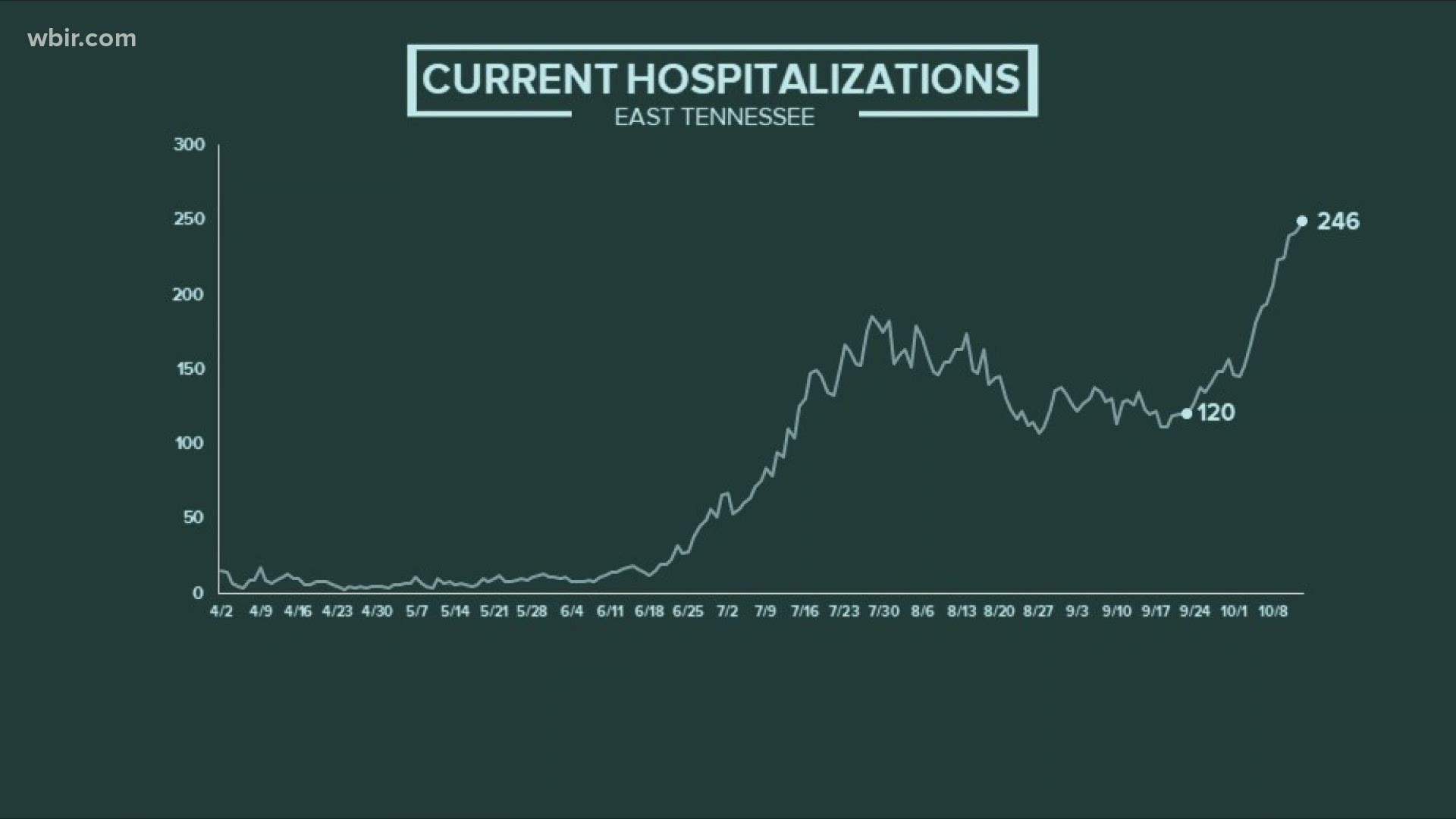NASHVILLE, Tenn. — Areas without mask mandates are experiencing larger increases in hospitalizations due to COVID-19, according to Vanderbilt hospital researchers.
"All of Tennessee has experienced an upsurge and an increase in those hospitalizations," said Dr. Melissa McPheeters, a research professor of health policy and biomedical informatics at Vanderbilt University Medical Center. "But it's hitting those hospitals that are drawing their patients from non-masked mandate counties the hardest."
The Tennessee Department of Health has said this sharp increase has been happening particularly in rural communities, where COVID-19 is spreading in much higher numbers across Tennessee and the U.S. over the past month.
The study found that hospitals that serve patients predominantly in areas without mask requirements saw the sharpest rate of growth in hospitalizations by far. Areas that served patients predominantly from areas with mask mandates had largely flat growth, and those with an equal mix of patients from the two groups similarly have seen sharp increases.


“We’ve seen a statewide increase in hospitalizations since early October, indicating that masking alone is not sufficient to curb further spread of the virus,” John Graves, Ph.D., director of the Center and associate professor of Health Policy at Vanderbilt University School of Medicine, said in a statement on Tuesday. “But it’s very clear that areas where masking requirements have remained in place have seen much lower growth in COVID-19 hospitalizations.”
This analysis update comes “as hospitalizations and new cases of COVID-19 have reached their highest points to date.”
This analysis, led by the Vanderbilt Center for Health Economic Modeling, shows that “consumer mobility patterns generally mirror community infection rates, with economic participation waning in Tennessee communities as cases and hospitalizations rise.” Researchers said while “consumer spending patterns have remained fairly stable,” restaurants, bars, and the entertainment industry were the most affected by the virus.


“As Tennesseans we can appreciate the instinct for the government to have a light touch when it comes to telling businesses how run their operations,” Graves said. “But simply standing out of the way is not enough; we need the state and especially the federal government to stand behind our businesses, because it’s clear that simply being ‘open’ does not guarantee business if economic participation dwindles as infections rise in the community.”
Stringent restrictions have been on restaurants, bars, and the entertainment industry. This analysis states “travel to restaurants and bars is down 24% compared to 2019.”
“Stemming the economic, health and health system fallout from the global COVID-19 pandemic requires collective responsibility on the part of individuals and their elected officials,” Graves said. “We’ve learned a lot about COVID-19, so with sufficient resources, processes and behavior in place, policymakers can implement a more precise response to the challenge than was undertaken back in the Spring.”
Researchers are calling for “collective responsibility.”
“Policies and individual behavior that facilitate letting the virus go unchecked in our communities will not only result in poorer health outcomes, but risks creating unnecessary and costly headwinds for families, businesses, schools, and health care providers across the state,” the report ended.

